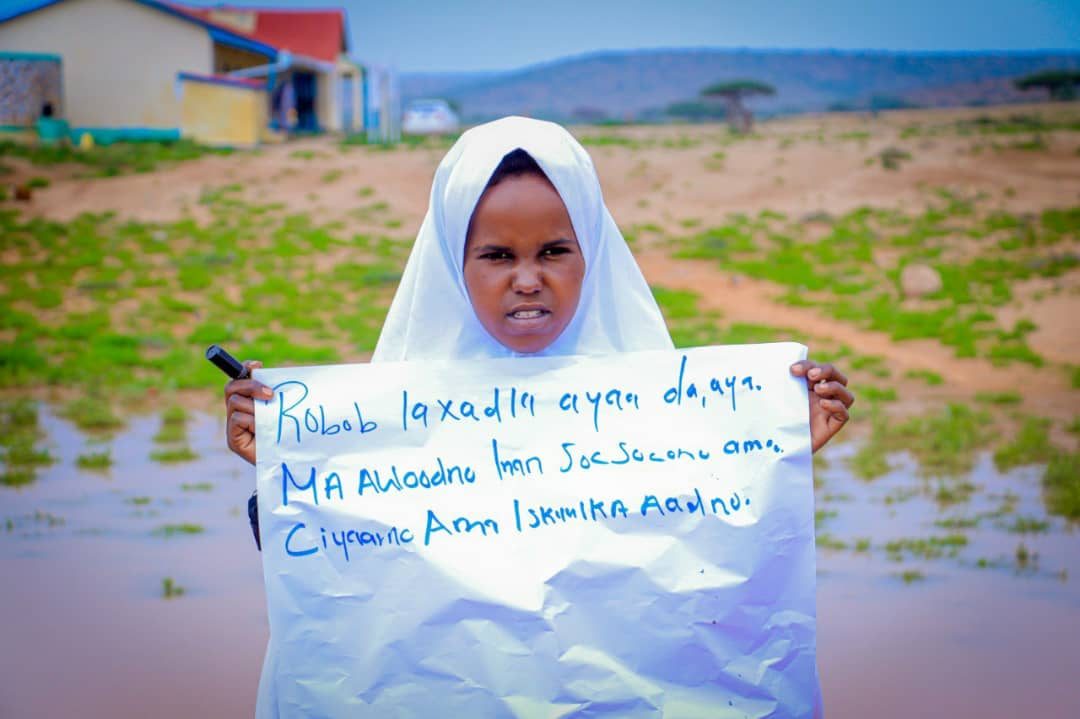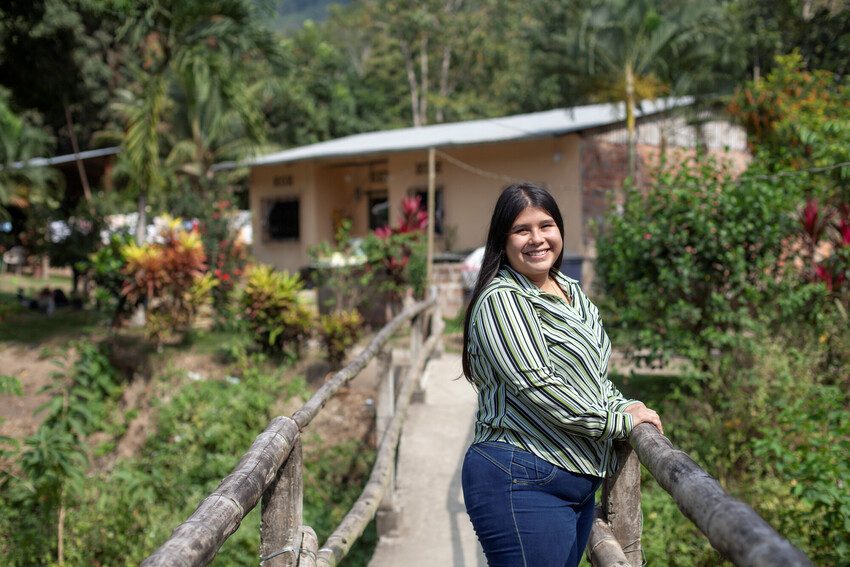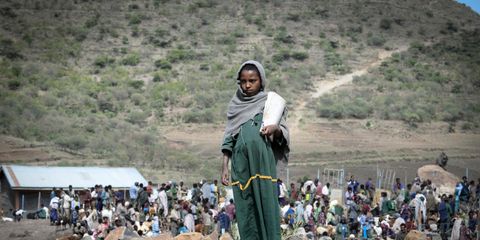Global girls call for climate action NOW
5 June 2024Discriminatory social and gender norms mean that girls are more affected by climate change and yet have the fewest resources to cope. But girls are also powerful climate advocates, leaders and innovators in action to address the climate emergency, writes Brigitte Rudram, Climate Change and Resilience Specialist.

“Heavy rains are pouring down. We are unable to move around, play or even access schools. Our schools are leaking and we hope our school infrastructure allows for us to continue studying despite the rains.”
Hamda, 12, Toghdeer Region Somaliland.
One billion children are at extremely elevated risk to impacts of climate change. The climate crisis is the greatest intergenerational injustice children face today. Discriminatory social and gender norms mean that girls are more affected by climate change and yet have the fewest resources to cope and strengthen resilience but girls can be powerful climate advocates, leaders and innovators in action to address the climate crisis.
“As young girls, there are many ways we can contribute to addressing the effects of climate change. Collective action is very powerful. We can speak up and demand concrete climate action from the government and corporations. We can be the voices of the children in our communities by sitting as members of the mandated bodies.”
Karille, 16, Philippines
Learning turns to action
Hamda and Karille are just two of hundreds of girls around the world who have been inspired to raise their voices through interactive climate education approaches, such as the Children’s Climate Cards, Y-Adapt and the Youth Leadership in Policy Workbook.
Through games-based, experiential learning -used in schools, communities and IDP camps- children and youth are supported to lead climate adaptation and advocacy in their communities to reduce the impacts of climate change and strengthen resilience to increasingly intense and frequent extreme weather.
“Good climate education is important because it promotes climate action more than anything else. The Children’s Climate Cards were useful in educating young learners on the most pressing climate challenges facing us, and how to deal with it.”
Abdirhman Yusuf Nuur, Principle Gatiitaley Primary School, Toghdeer Region, Somaliland.
Disproportionate impacts on girls
Tangible approaches to support child-led climate action have been effective in opening cross-sectoral dialogues with different Ministries to promote integration to national curriculum and climate action plans in countries across the world. In Timor-Leste the practical tools supported a successful case for climate education in schools.
Yet, climate action must go further, to ensure the needs of all children are being met. There is an urgent need to shape the approaches to address the specific impacts of the climate crisis on girls, especially the most marginalised.
Girls have a right to meaningfully participate in the climate decisions and actions that impact them.
Local to global decision makers must resource and support locally-led, girl-led climate initiatives from the outset, for long term, sustainable climate action.
Girls call for action
Girls call for action aims to prevent climate-related disasters disrupting their access to education as it is often the first thing families sacrifice when faced with impacts of the climate crisis. Girls are pulled out of school to help their families find food and water or take care of siblings.
Girls want to address the protection risks that are exacerbated by climate change shocks and stressors. For example, child marriage is used by families to cope with economic hardships caused by climate change. This puts millions of girls at risk of sexual and physical abuse, early pregnancy and maternal death.
“As girls, when the rains destroy our houses, our parents seek shelter on our behalf in the neighbourhood. While there, we are taken advantage of by boys and men living in that house where we will be sheltered”
Judith, 15, Zambia.
Girls call for accessible information, resourcing and support to leverage girl-led climate action and advocacy at local to global levels:
“We believe that proactive action led by young women is the key. We cannot wait for a catastrophe to strike. We must anticipate and prepare to protect girls and young women from the ravages of climate change through and with education. We want all girls and young women to have access to information about climate change and to know how they can make a difference. We are pushing for resources to be allocated and for early action plans to be developed in our communities.
Wenddy, 26 years old Venezuelan Migrant living in Ecuador, Because I am a Girl movement.
But we can’t do it alone. Today, we issue a call to action for all leaders:
In every climate policy decision , at local, national, regional, or global level, demand the inclusion of girls and young women, in all your debates and actions plans. Ask about our needs and our participation in a proactive way. Do not let our voices get lost in the noise.
Work with us to ensure that climate change adaptation and anticipatory actions respond to our needs as girls, and that they promote our participation. Together, we can forge a future in which all girls and young women are protected, empowered and leading the way to climate justice.”

At BonnSB60 yesterday – the June UN Climate Meetings that are crucial preparatory meetings to help lay the groundwork ahead of the COP29 UN Climate Change Conference in Baku, Azerbaijan. Children’s rights were unprecedentedly at the centre during the first Expert Dialogue on Children and Climate.
Decision makers were called upon to commit to children’s meaningful participation in the climate decisions that impact them, and for effective and accessible funding to address the disproportionate impacts of the climate crisis on children, and especially girls.
This World Environment Day, support girls in your community to raise their voices on climate action. Download the tools, and help make the global girls’ call for climate action a reality, holding world leaders to account.


